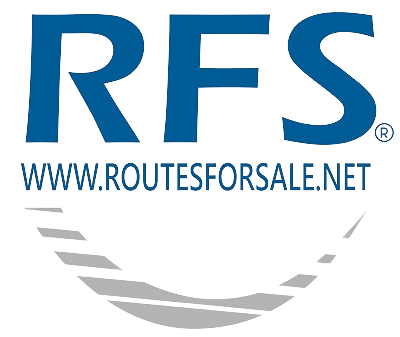
What are the day-to-day operations of this route?
To summarize, you will start your day by picking up your bread order from the warehouse and then proceed to deliver product to existing accounts that include grocery stores and restaurants usually starting in the morning hours. Your responsibilities will include the following: evaluating and creating an order of product needed for the shelf, pull the order from your inventory, receive the order through the back door, and then fill the order to the shelf.
What are the current average sales and gross income for this route?
Currently this route averages $366,496 a year in sales and grosses $87,959 per year in commission. Income documentation will be provided to all serious buyers.
How do I get paid?
This route currently has net weekly sales (gross sales, minus returns) of $7,048 for an average commission of $1,692 per week.
How much can I make?
$1,692 per week is the routes weekly average, this number can be increased, by supporting the company’s promotions and up selling within your designated territory. Route values can also be increased by new accounts opening, new product lines being added, and simple inflation.
Can I finance the route?
Seller will finance up to $75,000. Terms to be discussed. Unfortunately banks will NOT write business loans against route based businesses for several reasons but you can review additional Financing Options Here.
What are my expenses and overhead?
Expenses include, but are not limited to: fuel, vehicle maintenance, handheld computer and insurance. The current owner estimates $275 per week in expenses/overhead or $14,312 per year (Note: Expenses represent a cash purchase and do not account for finance payments if requiring a loan to purchase).
What type of insurance do I need?
Typically, a single owner operator of a route distributorship will need commercial insurance for their delivery vehicle and business liability insurance. Owners with multiple employees will need a multiple vehicle policy and workers’ compensation. Routes For Sale® now offers discounts on insurance! Through our size and volume, we have partnered with some of the largest insurance brokers in the nation to offer the best rates. Request Your Free Insurance Quote Here.
What type of vehicle do I need?
There is no vehicle included in the purchase. Common delivery vehicles used for this type of business are cargo vans, box trucks or enclosed trailers. If you are considering purchasing, leasing or financing a vehicle you can review additional information here.
What is the Gross vs the Net income?
The gross income for the route is $87,959 per year, minus your above-mentioned expenses of $14,312 gives you $73,647 in net income or cash flow.
How does the selling price of the route get determined?
All route sales are determined by a ratio based on a weekly sales average. The selling price of this route is $165,000 based on a weekly sales average of $7,048; the selling ratio is 23.5:1.
Do I have to pay for inventory or purchase product up front?
No, you do not have any out-of-pocket expenses when purchasing your inventory. You are however responsible for any inventory that cannot be accounted for through your sales. As long as you run the business as it is designed to operate, you will not have any out-of-pocket expenses or losses.

Do I have to sign a contract?
Yes, as an independent distributor you sign a service agreement. In turn the company agrees to promote and assist you in growing your business. The contract is to protect both the company and its wholesaler’s.
Why is the distributor selling?
The owner is pursuing other business opportunities.
How many accounts does the route have and where is the warehouse located?
Currently there are 28 accounts. The location of the accounts and the warehouse will be disclosed upon execution of an NDA.
How long has the seller owned the business?
The route and territory have been established for 2 years.
How many days a week, and what hours do distributors work?
Distributor works 5 days per week with Wednesday and Sunday off. Early morning hours are required.
What about vacation time or personal days?
As a business owner you are responsible for servicing the route. It is our recommendation that you hire or train someone for additional time needed off. Additionally, you can network and hire distributors with previous route experience at RouteReliefDrivers.com. Route Relief® Drivers is a nationwide network that allows independent route distributors and vacation relief drivers to connect with each other. Each party negotiates its own terms and compensation.
What is required in order to qualify for purchase?
Typically, most company routes or distributorships will require you to attend an interview for approval from the company, background check, and form an entity such as an LLC or Corporation. This not only protects the company, but also ensures protection of your business. If you need help forming this, we recommend that you Form A Corporation Here.
What else should I know?
Martin’s Famous Potato Roll products forged a new category in the supermarket and established the gold standard for potato roll taste and quality. Various competitors in recent years have attempted to produce a “potato roll” that matches the taste, quality, and freshness of Martin’s, but if market share is a fair indicator, none have measured up. Martins was the number one brand of potato rolls on the day they created the category, and they continue to dominate in the markets where they have established full distribution. In fact, some jokingly say that when this bread reaches its expiration date, it’s still fresher than the competitor’s bread the day it is delivered. Plenty of room for growth! Priced to sell at $165,000. Contact Us About This Route Here!
How can I learn more about these types of routes?
In order to provide New Buyers with as much information as possible we have put together a quick overview of the industry. Learn More About Martin’s Bread Routes Here!

 Chat
Chat




